College of Education
Highest Unisa accolade for high-energy, high-impact researcher
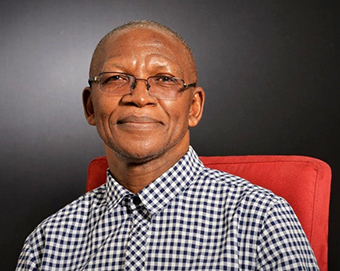
Prof Moeketsi Letseka, Incumbent of the UNESCO Chair on Open and Distance Learning & recipient of the Chancellor's Award for Excellence in Research
Receiving the Chancellor’s Award for Excellence in Research at the recent Unisa Research and Innovation Awards Ceremony means a lot to Unisa’s Prof Moeketsi Letseka. "Since joining the university in 2008," says the distinguished scholar and incumbent of the UNESCO Chair on Open Distance Learning in the College of Education (CEDU), "I have always had a reputation as a hyper-energetic researcher." Notably, Letseka was a National Research Fund (NRF) grand holder for the Archaeology of Ubuntu research project where he mentored developing and emerging researchers from the year 2014 to 2016.
Click here for coverage of the Unisa Research and Innovation Awards Ceremony 2022.
The research project was conducted in the Southern African Development Community (SADC) region and covered five provinces in South Africa. Letseka explains: "As a principal investigator I mobilised 24 young and emergent scholars, who served in the project under my tutelage. The project generated in excess of 20 research outputs contributing to professorial promotions of some of the African female researchers participating." Following this project, Letseka edited and co-edited three peer-reviewed scholarly books.
One of the requirements listed for this outstanding award is proof of having produced high-quality accredited publications in high-impact journals. The quality of outputs takes precedence over quantity. Says Letseka: "Actually, the College of Education has two winners of this research award, the other being Prof Mishack Gumbo." The monetary prize attached to the award is R100,000.
Giving thanks to the person who nominated him, Letseka adds, "I am grateful to Prof Velisiwe Gasa who is the research manager in our college. She had faith in my scholarly pedigree and this award affirms and confirms the volume, quality, and sustained impact of my scholarly contribution to our college and Unisa at large."
The news team interviewed Letseka about his award and contributions to the advancement of research
Q: Why did you emerge as the recipient of this research award?
A: I believe I received the award not only on the basis of the volume of my research outputs in the past five years, but also on the quality and sustainable impact of my scholarship, most of which included development and capacity-building, and co-authoring works with mentees. I think I submitted a total of 24 research outputs including two books.
My publications appear in scholarly journals that are accredited by reputable accreditation indexes such as Publons (Web of Science), International Bibliography of the Social Sciences (IBSS) and Scopus. They have also received high citations in Google Scholar and in the Web of Science, which is an indication of high impact.
In my role as incumbent of the UNESCO Chair on Open Distance Learning I have presided over the hosting of 30 high-quality research seminars from 2019 to 2021, as well as the organisation of three international ODL research conferences, one of which attracted over 1 300 delegates. It is also worth mentioning that at the time of the submission of the awards nomination application I had received the honour of being listed among the 10 000 most influential scientists on the African continent by the 2021 AD Scientific Index.
Q: How did you find the award application process?
A: The process is both challenging and rewarding. Like the NRF rating application process, it pushes one to venture into the unfamiliar space of "critical self-examination" of one’s perceived or real identity and worth as a researcher and scholar. As I began working on my submission, I had to deal with the challenge of assembling the required evidence on my research outputs in the form of tangible cover pages and information pages that indicate the respective publications and years of publication. Much as the process might come across as a mere bureaucratic process, I found it helpful in that it pushed me into retrieving the records of some of my work which I had only captured in my detailed CV. I had never previously thought of creating a complete repository of the images in question. By going through that laborious, and seemingly tedious process, I emerged with a sense of fulfilment and affirmation of my worth as a researcher, scholar, and mentor.
Q: How will your research change the lives of South Africans?
A: My scholarship in philosophy of education aims to raise critical questions about our taken-for-granted assumptions about issues that pertain to conceptions about ourselves (identities), conceptions about our lives (ontological issues), conceptions on our ideas about knowledge and what’s knowable (epistemology), and mostly teleological issues (our general purpose in the world as humans).
Central to my research is to draw on these philosophical premises to probe deeper into our role (s) and ODeL practitioners, and to get clear about what we’re required to as ODeL practitioners, and to map effective and efficient ways in which our role(s) can impact our communities in beneficial and sustainable ways
Q: How will Unisans benefit from your findings?
A: I can only hope that my research and scholarship will make Unisans better practitioners of the ODeL mode of delivering higher education at a distance, in the digital era that is rapidly changing and taking unknown forms, thus making the future unknowable and unpredictable.
Q: What excited you about this award, and why?
A: The Hollywood movie industry rewards best performing actors with the highest award, the Oscar, which is referred to as the Academy Award. The Chancellor’s Award for Excellence in Research is regarded as the highest, and most prestigious recognition of research excellence and innovation at Unisa. It is what the Oscar is to Hollywood’s performing artists. It rewards high-quality research published by permanent Unisa researchers and research groups. It confers the highest accolade and recognition to its recipient.
In conclusion, Letseka motivates young academics by quoting his mentor, Prof John White from the University of London: "When you work hard, your work will stand out and speak volumes about who you are. You need not to advertise your capabilities. Your work will do that for you."
* By Lesego Chiloane-Ravhudzulo, Journalist, Department of Institutional Advancement
Publish date: 2022-06-08 00:00:00.0

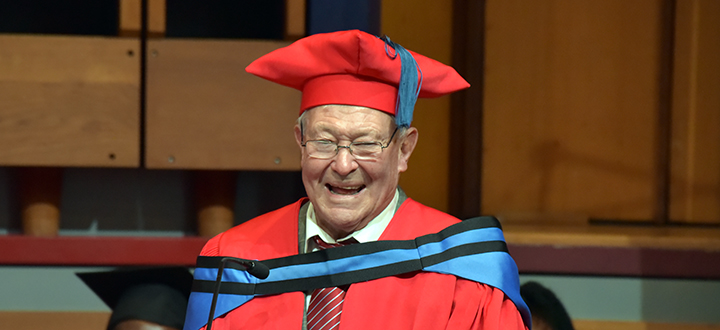 Community champion and agricultural entrepreneur extraordinaire honoured by Unisa
Community champion and agricultural entrepreneur extraordinaire honoured by Unisa
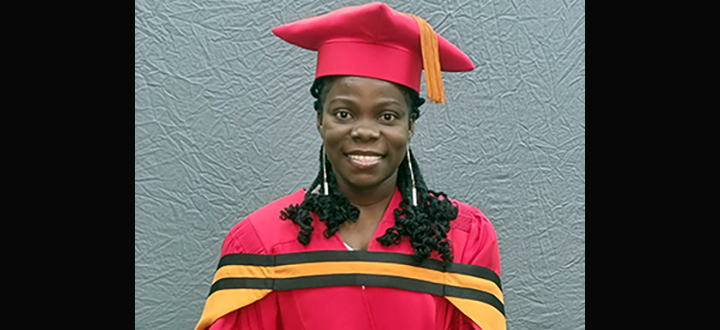 Ghanaian-born Swede earns PhD in Information Sciences from Unisa
Ghanaian-born Swede earns PhD in Information Sciences from Unisa
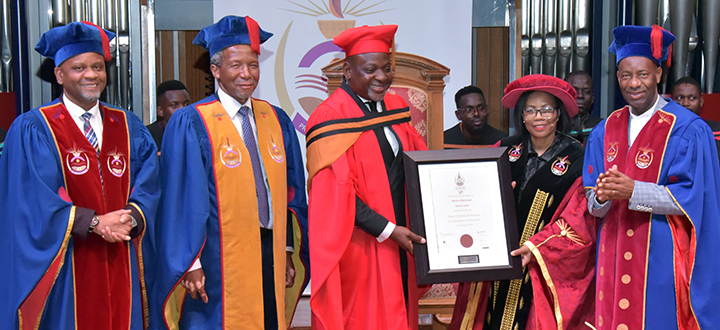 Unisa awards honorary doctorate to exemplary philanthropist and entrepreneur Collen Tshifhiwa Mashawana
Unisa awards honorary doctorate to exemplary philanthropist and entrepreneur Collen Tshifhiwa Mashawana
 Inhlanyelo Hub explores financing and sustainability at the International Conference on Business Incubation
Inhlanyelo Hub explores financing and sustainability at the International Conference on Business Incubation
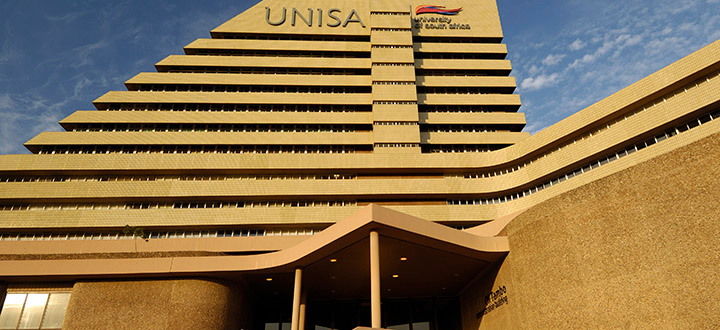 Unisa remains anchored among the waves
Unisa remains anchored among the waves